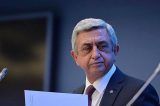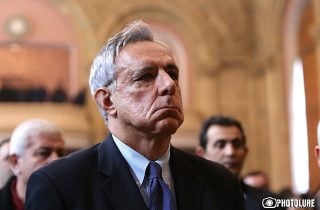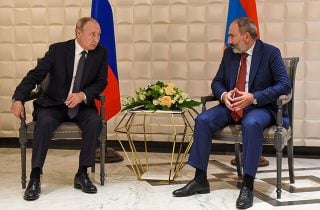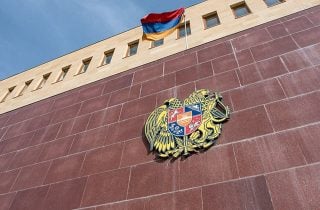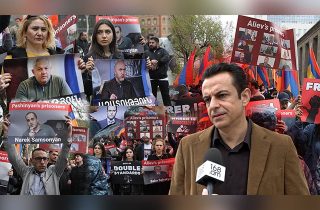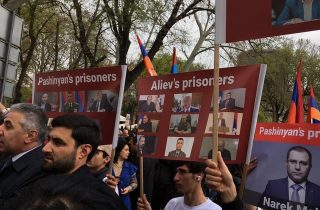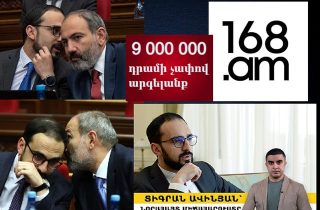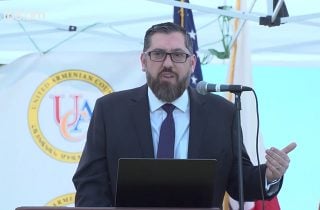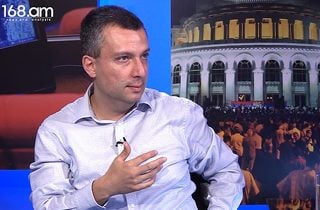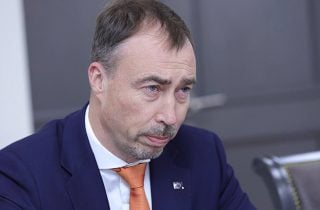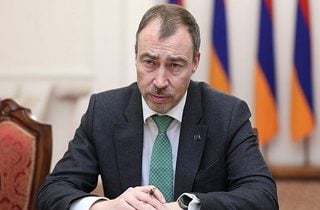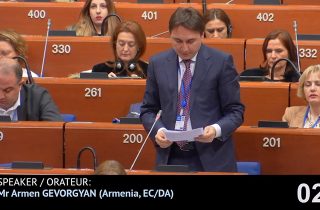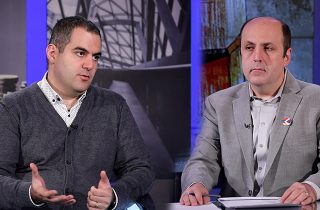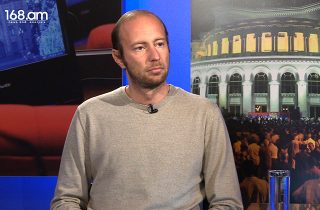“An offer Serzh Sargsyan couldn’t refuse,” says Thomas de Waal
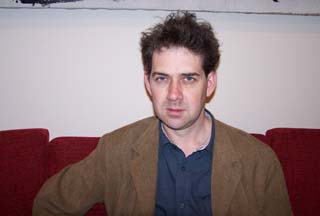
The official webpage of Carnegie Endowment for International peace published the article of a senior associate of the Endowment, Thomas de Waal, author of the authoritative book on the Karabakh conflict, Black Garden and many other articles. The last article was titled, “An offer Serzh Sargsyan couldn’t refuse.” It reads, “The announcement came quite suddenly. Armenian president Serzh Sargsyan was going on a brief visit to Moscow. Everyone knew there was only one item on the agenda: Vladimir Putin’s invitation to Armenia to join his Eurasian Union project. And, late in the day, we got the confirmation that this was an offer Sargsyan could not refuse. He duly declared that Armenia would be joining the Union. As soon as the announcement was made, I followed a trail of agony and unhappiness from Armenians on Facebook who had been praying for things to turn out differently. Could they? It has certainly been a long hot summer for the Armenian leadership. The pace of talks with the European Union accelerated ahead of the Eastern Partnership meeting in Vilnius this November. The Armenians were told that they could initial an Association Agreement, but also that, if they wanted, to pursue an EU Deep and Comprehensive Free Trade Area, that would preclude them from joining the Customs Union—in the first place, because the tariff levels would be incompatible. The Russian response was direct. They released the news of a massive sale of offensive weapons to Armenia’s adversary, Azerbaijan. Putin made a blitz visit to Baku, bringing a dozen senior officials with him. Armenian officials admit it was all about security that they could not afford to alienate their only major military ally who could undermine them in the blink of an eye. In Moscow, Sargsyan stated, “I have repeatedly said before that when you are part of one system of military security it is impossible and ineffective to isolate yourself from a corresponding economic space.” Sargsyan also emphasized that the decision did not amount to a rejection of the EU. It is true that the political parts of the Association Agreement can still be agreed on in Vilnius, but the economic integration project is now surely doomed. Some in the Armenian government complain that the EU did not give them room for maneuver, and it is true that the Brussels bureaucracy is a clunky machine that does not do diplomacy well. But you can also see this as a car crash in slow motion over several years. Both the administration of Sargsyan, and Robert Kocharyan before them, embraced a Russian take-over of the economy, which left them political control and did not expose them to European-style competition. As Sargsyan began (tentatively) to have second thoughts about this bargain, he found himself badly short of options. As for the Russians, they have played this game very cleverly. Armenia, of course, is not the main target—Ukraine is. Now the pressure on Kiev gets even greater.”
According to EUobserver, Armenia’s decision to join the Customs Union has surprised the EU. The EU has concluded negotiations on a political association and free trade pact with Armenia and expected to initial it at an EU summit with former Soviet states in Vilnius in November. EUobserver highlights that if Armenia does become a full member of the Russian-led customs bloc, along with Belarus and Kazakhstan, it cannot sign the EU pact at the same time. But Sargsyan might be trying to cherry pick bits of the Russian offer, which are compatible with the EU deal. EU diplomats in Yerevan held crisis meetings on Tuesday evening to get an insight into events. A European Commission spokesman told this website: “We are consulting closely with our Armenian partners. When we have all the information, we will, of course, examine all the potential implications of what was announced today.” Sargsyan’s u-turn was made in the context of tricky developments on Nagorno-Karabakh. Russia is Armenia’s main security guarantor in its frozen conflict with Azerbaijan over the breakaway territory. It has a military base in Armenia itself. But in June this year Russia began delivery of some $1 billion of tanks, artillery and rocket launchers to Azerbaijan. Russia in recent weeks has also threatened Moldova and Ukraine, two other former Soviet states which are seeking deeper ties with the EU.





